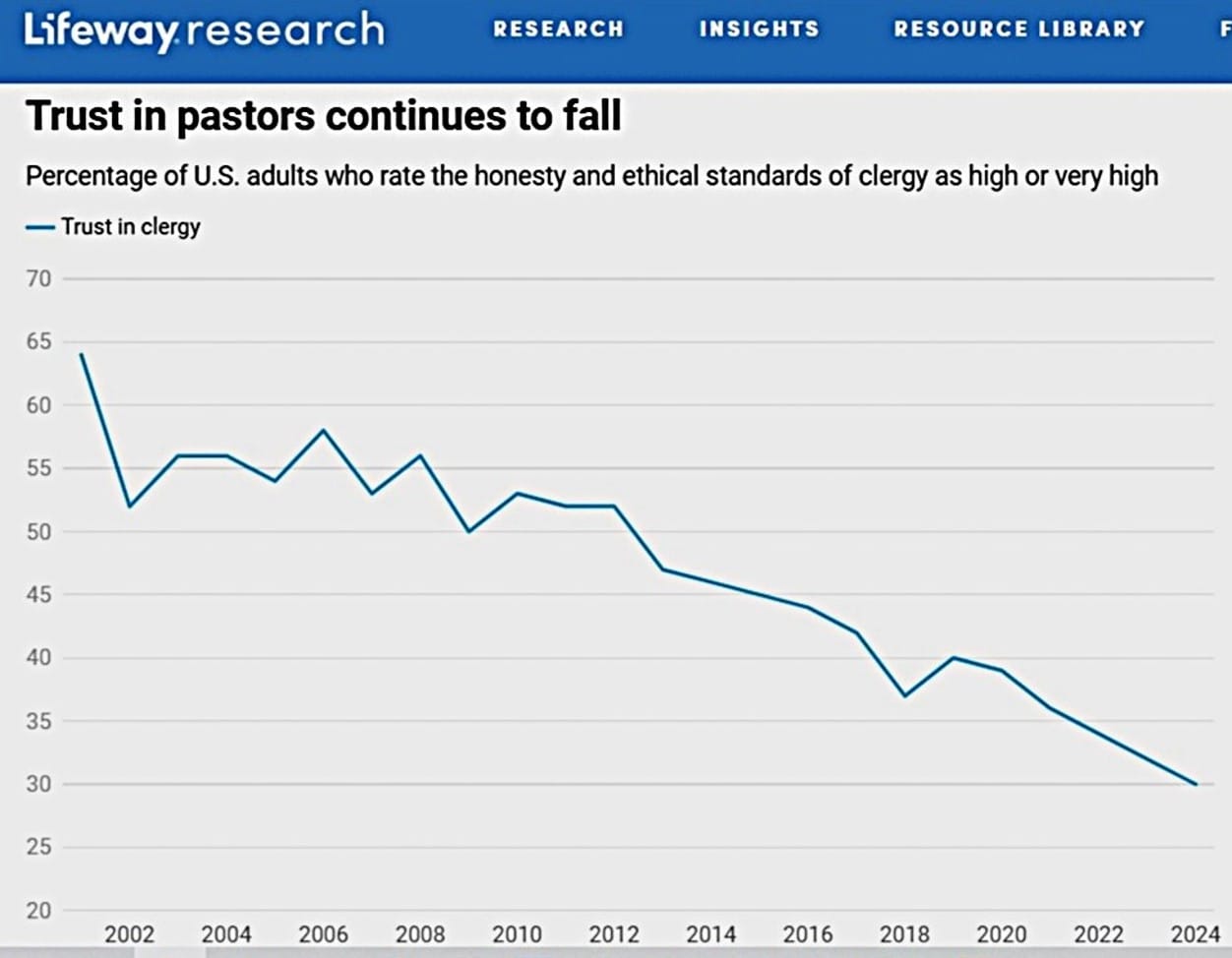I gave the sermon (or "teaching," as we sometimes call it) at our church a couple Sundays ago. The sermon was part of a series on relationships, and I volunteered to do the one on church leadership so none of our elders would need to talk about themselves. 😊
By God's grace, I've served briefly as a church leader in a couple settings. I've also often worked in support roles, without official leadership responsibility. I have a lot of sympathy for both leaders and followers. My main goal in this sermon was to sketch, in broad strokes, the kind of relationship that God desires in his church between human leaders and the rest of the flock.
Since I wrote out my sermon, I thought I'd share it here, lightly edited for the internet. I'll include images I shared. Please remember this is a sermon, so don't expect me to provide rigorous exegetical defense for my points. I briefly touch on a few topics that can be controversial, but this was not the place to dig deep. I'm sure you can think of many things I missed that were equally worth including.
Finally, this post will be longer than most. It took me about 35 minutes when I shared it at church. Thanks in advance for reading!
Church Leadership: Shepherds, Sheep, and the Good Shepherd
It is no secret that we have a leadership crisis in America. This is at least as true in the church as anywhere else.
“From the time Gallup started rating…23 professions in the early 2000s through this year [2025], there has been a 26-point decline in the perceived honesty and ethics of clergy, the most for any group. The proportion saying the clergy have high or very high ethics is down from an average 56% in 2000-2009 to 30% today.” (Source)
Most of us could name more than one famous pastor who has fallen in disgrace. It’s also easy to find pastors who have lost their spine for truth and are teaching whatever message will draw the largest crowds and the biggest offerings. On top of this, pastors are burning out and resigning at an alarming rate.
Closer to home, many of us can tell deeply personal stories where church leadership problems have left churches painfully shattered. One of the harder conversations I’ve ever had was a two-hour phone call with a bishop who was then leading the home church I had attended as a boy. I tried to show him that his heavy-handed leadership choices were contrary to Scripture. He disregarded my appeal and other voices of warning. The church soon divided, and to this day my family is divided with it, with one of my brothers in one church, and another brother and my mother in the other church. And that bishop? He has since resigned from leadership in disgrace, refusing to be accountable for unwise personal decisions.
So, yes, there is a leadership crisis in America.
There’s a good chance that when you first heard me say that, your mind went to politics. I’m not going to talk about politics today, though, unless by “politics” you mean the politics of the church of Jesus Christ. The word “church,” after all, was a often used as political word in Jesus’ day, referring to an assembly of citizens who gathered to make decisions for their city.
When the early Christians referred to their gatherings as churches, they understood that they, too, possessed authority, authority from Jesus to make decisions, authority to work together to interpret and apply the laws of Jesus’ kingdom.
But what form of government did the early church have? Were they a monarchy, with the whole church led by a single pope and each congregation ruled by one bishop or pastor? Were they a republic or aristocracy, with the church led by a board of elders who together made decisions for the church? Or were they a direct democracy, with each member having an equal vote and decisions made by majority vote?

What sort of church leadership do we find in the New Testament, and what should the relationship look like between leaders and the rest of the church?
Let’s begin with the Bible of the early church. The OT prophets described leadership problems in their day. Here are two:
First, there were spineless “leaders” who told people whatever they wanted to hear. Zechariah warned of leaders who “give empty consolation. Therefore the people wander like sheep; they are afflicted for lack of a shepherd” (10:2-3 ESV). Jeremiah said “the prophets prophesy falsely” and “my people love to have it so” (5:30-31). Similarly, Paul warned about people who have “itching ears” and “accumulate for themselves teachers to suit their own passions” (2 Tim. 4:3).

Second, there were abusive leaders who oppressed the people. Listen to Ezekiel:
Thus says the Lord God: Ah, shepherds of Israel who have been feeding yourselves! Should not shepherds feed the sheep? You eat the fat, you clothe yourselves with the wool, you slaughter the fat ones, but you do not feed the sheep. The weak you have not strengthened, …the strayed you have not brought back, …and with force and harshness you have ruled them. So they were scattered, because there was no shepherd, and they became food for all the wild beasts. My sheep were scattered; they wandered over all the mountains and on every high hill. My sheep were scattered over all the face of the earth, with none to search or seek for them. (Ez. 34:2-6)
Sheep don’t do well without shepherds, and neither do we! But spineless or abusive shepherds are no better than none.
What was God’s solution for this shepherd problem? “Behold, I, I myself will search for my sheep and will seek them out… I myself will be the shepherd of my sheep,” God promised through Ezekiel (34:11, 15). And, “I will set up over them one shepherd, my servant David… he shall feed them and be their shepherd” (34:23).
This takes us directly to Jesus, the divine son of David. When the bad shepherds in Jesus’ day kicked a man out of the synagogue because he refused to deny Jesus after Jesus had restored his sight on the Sabbath, Jesus got upset. He launched into full shepherd mode:
The thief comes only to steal and kill and destroy. I came that they may have life and have it abundantly. I am the good shepherd. The good shepherd lays down his life for the sheep. He who is a hired hand and not a shepherd, who does not own the sheep, sees the wolf coming and leaves the sheep and flees, and the wolf snatches them and scatters them. He flees because he is a hired hand and cares nothing for the sheep. I am the good shepherd. I know my own and my own know me... And I have other sheep that are not of this fold. I must bring them also, and they will listen to my voice. So there will be one flock, one shepherd. (John 10:10-16)
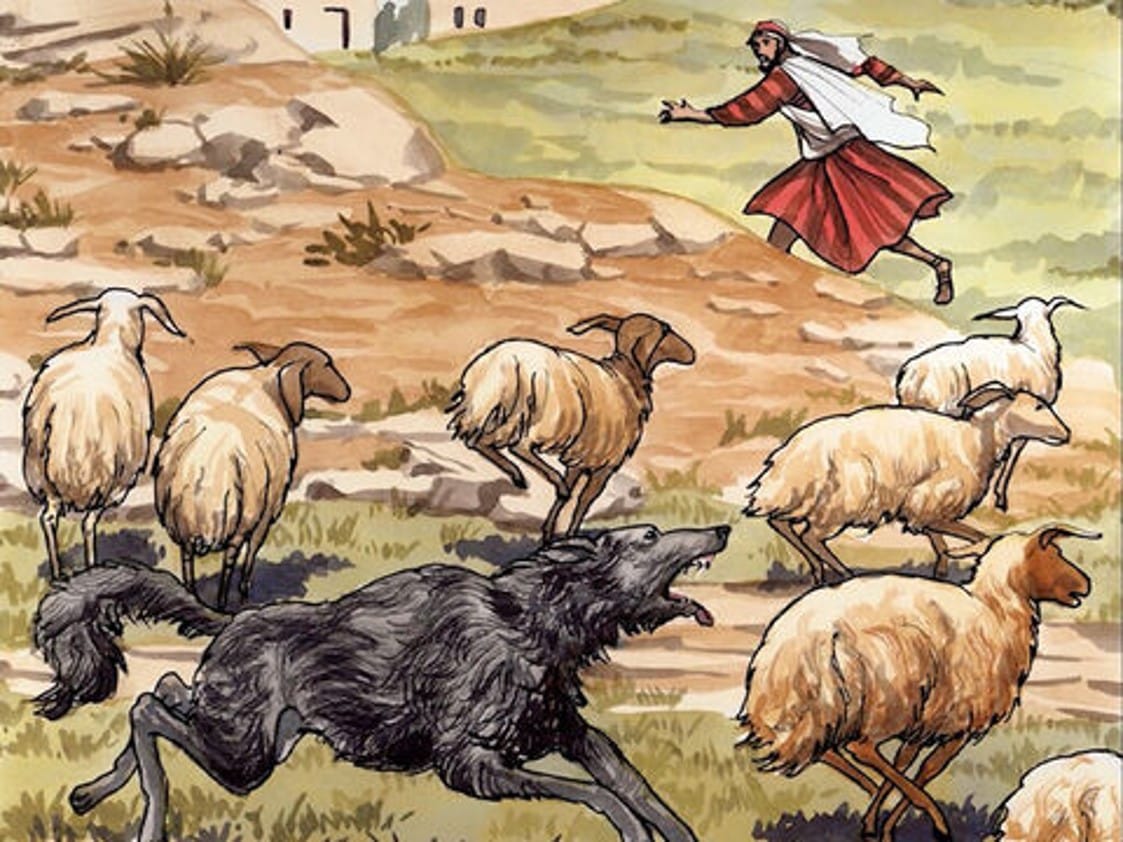
So there it is: One flock, one shepherd. That’s God’s ultimate answer to our leadership problem: Instead of many bad shepherds, God has provided one Good Shepherd.
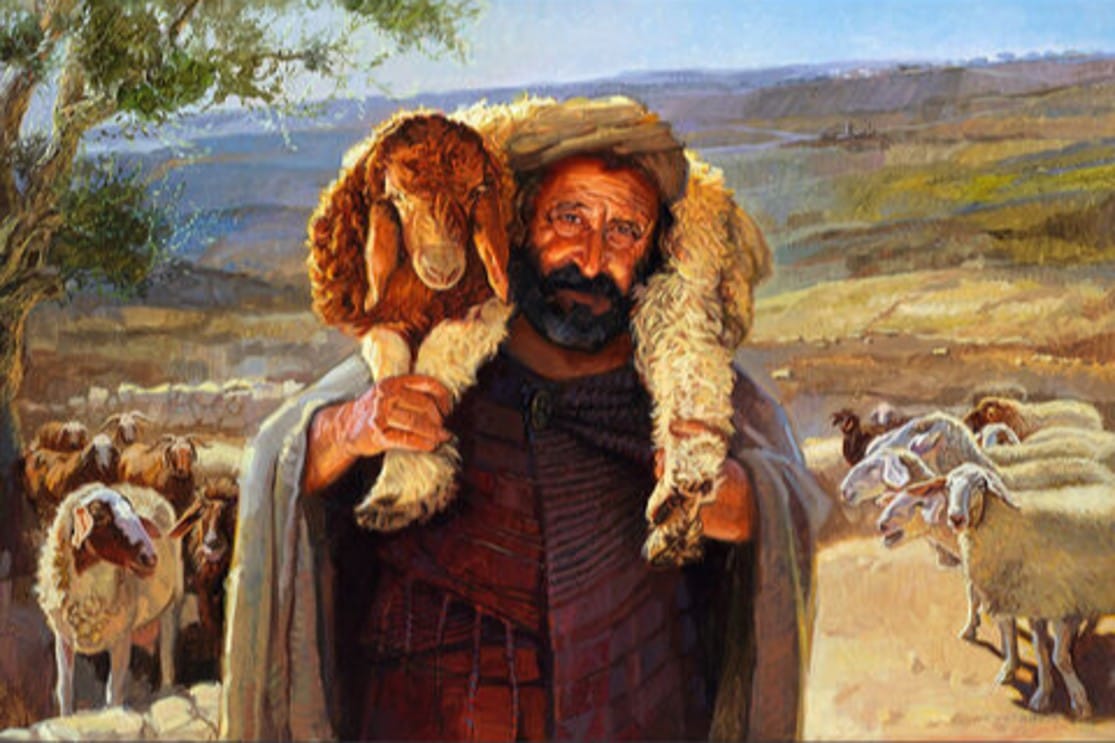
So does this mean we don’t need human leaders in our churches?
Not so fast, the prophet Jeremiah says. While Ezekiel foretold of one divine shepherd for God’s people, God’s promise through Jeremiah was different: “I will give you shepherds after my own heart, who will feed you with knowledge and understanding” (3:15).
And this, too, takes us straight to Jesus, as we can see in Matthew’s gospel:
When he saw the crowds, he had compassion for them, because they were harassed and helpless, like sheep without a shepherd. Then he said to his disciples, “The harvest is plentiful, but the laborers are few; therefore pray earnestly to the Lord of the harvest to send out laborers into his harvest.” And he called to him his twelve disciples and gave them authority... (Matt 9:36 – 10:1)
What did Jesus do when he saw the crowds were like sheep without a shepherd? He chose twelve disciples to spend extra time “with him” and “appointed” them as “apostles” to “preach” and “have authority to cast out demons” (Mark 3:14-15). These apostles were to be “shepherds after [God’s] own heart,” as Jeremiah had promised. They were to do the urgently needed work of protecting and providing for God’s flock.
How did Jesus expect these shepherds to help lead his sheep? Jesus didn’t write a church leadership manual, but he did give us important clues for good shepherding. Here are several we see in the Gospels:
- Jesus gave his own example of servant leadership. “Who is the greater, one who reclines at table or one who serves? Is it not the one who reclines at table? But I am among you as the one who serves” (Luke 22:27). “If I then, your Lord and Teacher, have washed your feet, you also ought to wash one another's feet” (John 13:14). Or, as Jesus emphasized to Peter, if you love me, “Feed my sheep” (Jn 21:17).
- Jesus also gave his apostles authority to interpret the laws of the kingdom of heaven. He told Peter: “I will give you the keys of the kingdom of heaven, and whatever you bind on earth shall be bound in heaven, and whatever you loose on earth shall be loosed in heaven” (Matt. 16:19).
- But two chapters later Jesus gave the same authority to the church as a whole: “If your brother sins against you, go and tell him his fault, between you and him alone… If he does not listen, take one or two others along with you.. If he refuses to listen to them, tell it to the church… Truly, I say to you, whatever you bind on earth shall be bound in heaven, and whatever you loose on earth shall be loosed in heaven” (Matt. 18:15-18).
Together, these two passages suggest that church leaders are part of the church—they are sheep as well as shepherds—and that Jesus’ ideal is for leaders to work together with the church to help the church come to consensus in decision-making. Jesus gave more teachings that support this approach: - When disciples were arguing about who would be greatest in Jesus’ kingdom, Jesus called them and said, “You know that the rulers of the Gentiles lord it over them, and their great ones exercise authority over them. It shall not be so among you. But whoever would be great among you must be your servant, and whoever would be first among you must be your slave” (Matt.20:25-27).
- Perhaps the most shocking teaching Jesus gave about leadership came in a warning about the scribes and Pharisees:
“They preach, but do not practice. They tie up heavy burdens, hard to bear, and lay them on people's shoulders, but they themselves are not willing to move them with their finger. They do all their deeds to be seen by others. For they… love the place of honor… and greetings in the marketplaces and being called rabbi by others. But you are not to be called rabbi, for you have one teacher, and you are all brothers. And call no man your father on earth, for you have one Father, who is in heaven. Neither be called instructors, for you have one instructor, the Christ.” (Matt. 23:3-10)
There it is again: one instructor, one shepherd: Jesus!
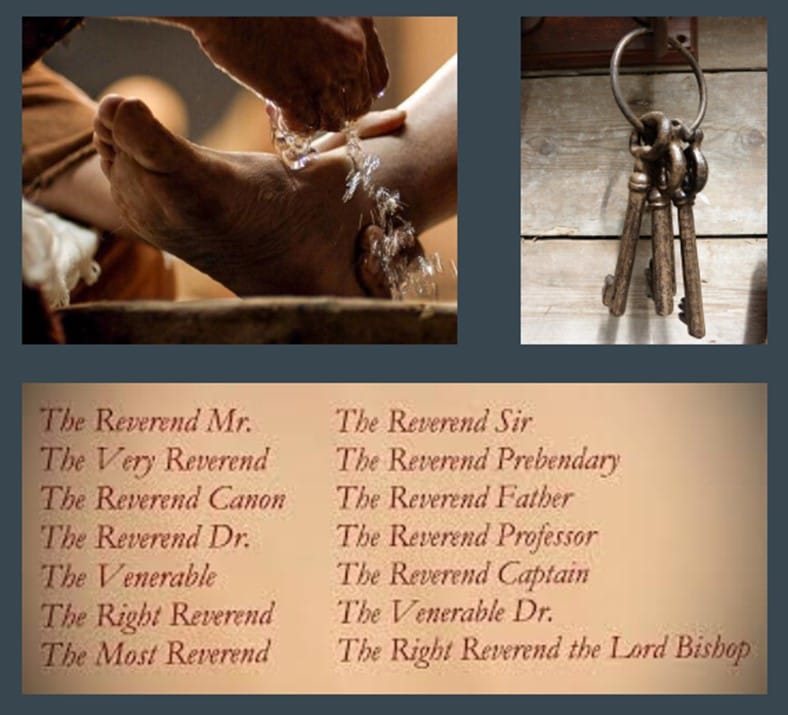
How should we apply this teaching? One way I honor Jesus’ words is by avoiding religious titles whenever possible. For example, I will say that Dean is a pastor here at Cellebration Fellowship, but I don’t call him “Pastor Dean” and certainly not “The Right Reverend Lord Bishop Dean.” Yes, there are people gifted as teachers and instructors and prophets and givers among us, but I’m not going to start saying “Father Thomas” or “Prophet Chris” or “Benefactress Sharon.” We’re all brothers and sisters and we have one Father!
The apostle Peter remembered Jesus’ teachings about leadership and summarized them in a powerful passage in chapter 5 of his first letter:
I exhort the elders among you, as a fellow elder…: shepherd the flock of God that is among you, exercising oversight, not under compulsion, but willingly, as God would have you; not for shameful gain, but eagerly; not domineering [lording it] over those in your charge, but being examples to the flock. And when the chief Shepherd appears, you will receive the unfading crown of glory. (1 Pet. 5:1-4)
Here we should note three terms for church leaders that Peter alludes to in this passage: elders, shepherds, and overseers.
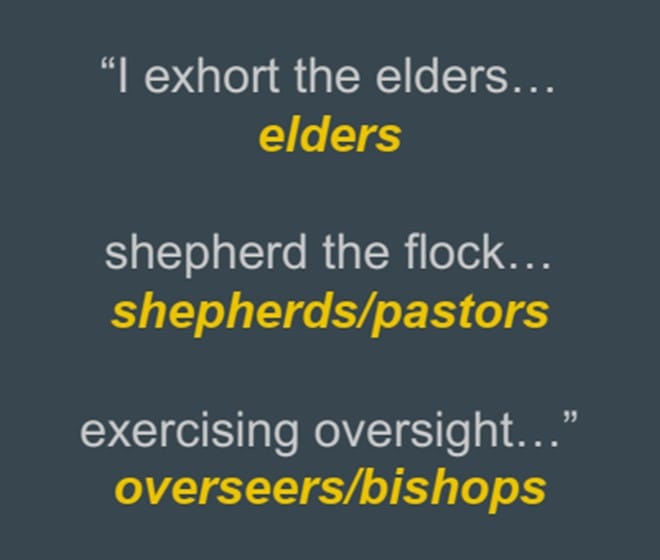
All three refer to the same person! In modern usage they are often separated, with elders, pastors, and bishops understood to have different roles and authority. But in the NT these all refer to the same office. The term “elder” suggests the maturity and experience of a good leader; the term “shepherd” summarizes his role in caring for the church; and the term “overseer” indicates the watchful alertness that a good leader must demonstrate.
In the book of Acts we see the early church learning to handle leadership in Jesus’ way. In chapter 1 we see the church working together to choose a new apostle; Peter raised the need, the group nominated two candidates, and they used a lot to decide between them. In chapters 2 and 4 we see the believers devoting themselves to the apostles’ teaching and entrusting their money to the apostles, who shared it as needed among the group. In chapter 6 the apostles were notified that they were missing some of the widows in the daily distribution, so they “summoned the full number of the disciples” and proposed a new division of labor: the twelve apostles would focus on preaching and prayer, and the church should select seven men to care for the material needs of the church. After the church chose seven, the apostles “prayed and laid their hands on them.”

In these examples from Acts, notice how the leaders and the whole church worked together as a team. Sometimes leaders identified needs and alerted the church. Other times individuals came to leaders to tell them of problems. Either way, after a problem had been identified, the leaders brought a proposal to the whole group, inviting their input. Then, after others had a chance to help shape the decision, the leaders gave it their official stamp of approval.
This was not monarchy or aristocracy, where one person or a select few made all the decisions. Nor was it democracy where a majority vote ruled over a minority who lost the vote. Rather, it was an approach that aimed for consensus, where all came to a wise agreement.

We see a similar approach again in Act 15, when a big conflict arose over how to include Gentiles in the Jewish church. After a lot of debate, they found a solution that “seemed good to the apostles and elders, with the whole church… and the Holy Spirit” (15:22, 28), a decision that put as light a burden as possible on the new Gentile believers.
We should note three more things about the Act 6 account: First, not just anyone could be a leader; they had to be “men of good repute, full of the Holy Spirit and wisdom.” Second, they did not appoint themselves, but were chosen by the church. And third, this passage hints at the two offices of elders and deacons that we see later in the New Testament, where the primary leaders of the church focus on the ministry of the Word and assistant leaders care for the physical needs of the church. There are lots of other gifts and roles described in the NT—evangelists and prophets and more (some women as well as men)—but the general pattern of local church leadership that we find in the NT and the earliest church afterward is the two offices of elder/pastor/overseer and deacon.
When Paul and his team traveled as missionaries, they encouraged the new converts and “appointed elders for them in every church” (Acts 14:23). Note that Paul appointed “elders” in every church, not “an elder.” This matches the pattern of plural or shared leadership we see throughout the NT.
This brings us to Acts 20, which gives us the most personal and powerful words we have from Paul to church elders. In this passage Paul presents his own ministry as a model for faithful church elders. The need for diligent teaching is a key theme in this passage. Paul says “I did not shrink from declaring to you anything that was profitable, and teaching you in public and from house to house” (20:20); “I testify to you this day that I am innocent of the blood of all, for I did not shrink from declaring to you the whole counsel of God” (20:26-27). Then he exhorts the elders directly:
Pay careful attention to yourselves and to all the flock, in which the Holy Spirit has made you overseers, to care for the church of God, which he obtained with his own blood. I know that after my departure fierce wolves will come in among you, not sparing the flock; and from among your own selves will arise men speaking twisted things, to draw away the disciples after them. Therefore be alert, remembering that for three years I did not cease night or day to admonish every one with tears… (Acts 20:28-31)
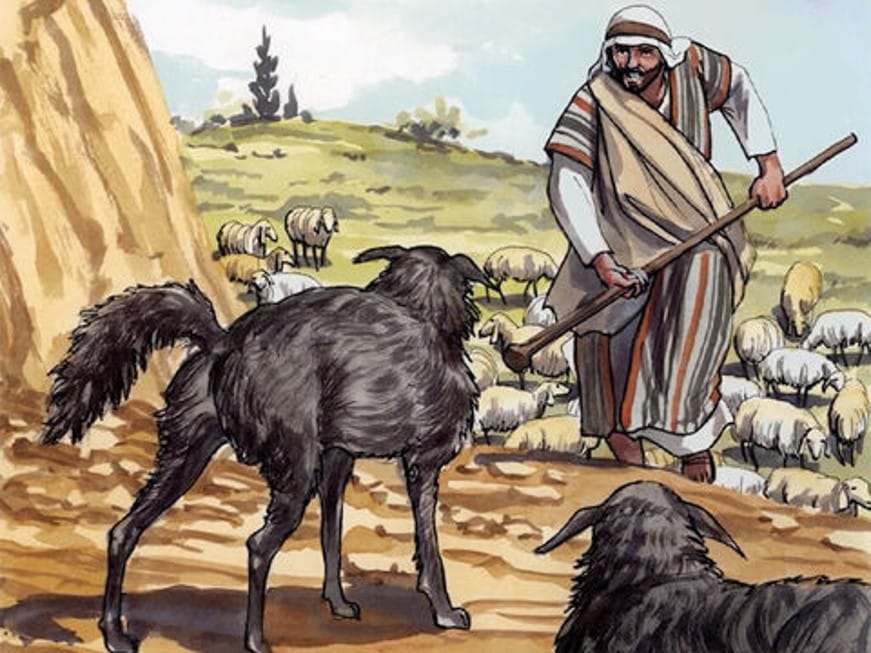
Note several things in this passage:
First, elders are vitally important to protect the flock of God from fierce wolves. One way they do this is by teaching “the whole counsel of God.” I want to encourage our leaders here at Cellebration Fellowship to do this: Don’t shrink from the less popular passages or teachings of Scripture. Leaders must not have a love of controversy, but they dare not shy away from topics just because they know some people don’t want to hear about them.
Second, the real reason elders are important is because the church is so important! God has purchased it “with his own blood.”
Third, we should expect that sometimes elders themselves will go astray, speaking “twisted things” and dividing God’s flock.
And fourth, note that this passage again equates three titles for church leaders: Paul calls the “elders” together, tells them to care for God’s flock (be good shepherds/pastors), and reminds them that the Holy Spirit as made them “overseers.” (Titus 1:5-7 also uses the terms “elder” and “overseer” to refer to the same persons.) Thus, there’s no biblical reason for making a distinction between pastors and elders, or for having a separate class of bishops. All are called to the same work.
When we turn to Paul’s letters to churches—to the Romans, Corinthians, Galatians, Ephesians, Philippians, Colossians, and Thessalonians—we find some surprises:
First, in only one of these nine letters does he address the leaders of a church, and then he doesn’t even mention their names (Phil. 1:1 “to all the saints… with the overseers and deacons”)! Imagine if a famous Christian wrote an official letter to Cellebration Fellowship and they said “hi” to several of us by name in the letter, but they didn’t even mention Dean or the other elders!
Second, Paul talks about really important church activities in his letters, like baptism and the Lord’s table and how to conduct church gatherings, collecting offerings, marriage and divorce, and how to discipline sinful church members—but in all of this he almost never mentions church leaders! He never once says anything like “pastors are responsible to administer the ordinances and excommunicate sinful members.” Rather, over and over we just see Paul telling the whole church what to do.
Third, whenever Paul writes lists of those who lead and those who submit—husbands/wives, parents/children, masters/slaves—he never mentions church leaders and church members.
When Paul describes the work of shepherds and teachers, he says their job is “to equip the saints for the work of ministry” (Eph. 4:12). In other words, it isn’t the leaders’ job to do all the work themselves, but to equip the whole church to do the work! Again, we sense that leaders are important because the church is important, not the other way around.

Despite all I’ve just said, Paul did think church leaders were hugely important. Indeed, he said we are to “esteem them very highly in love because of their work” (1 Thess. 5:13).
Paul’s main teaching on church leaders is found in his letters to Titus and Timothy. He told Titus to “appoint elders in every town” (1:5) and he gave both Titus and Timothy detailed lists of qualifications for leaders.
The longest list is found in 1 Timothy 3:1-13. Before we read it, we should note that elsewhere in the letter Paul repeatedly warns against bad leaders—for example, those “desiring to be teachers of the law, without understanding… what they are saying” (1 Tim. 1:7), or proud and quarrelsome leaders who teach “a different doctrine” that “does not agree with the sound words of our Lord Jesus Christ” (1 Tim. 6:3-4). It’s in this context that Paul gives his qualifications for leaders:
The saying is trustworthy: If anyone aspires to the office of overseer, he desires a noble task [honorable position – NLT; "If anyone wants to date my daughter...!"]. Therefore an overseer must be above reproach, the husband of one wife, sober-minded, self-controlled, respectable, hospitable, able to teach, not a drunkard, not violent but gentle, not quarrelsome, not a lover of money. He must manage his own household well, with all dignity keeping his children submissive, for if someone does not know how to manage his own household, how will he care for God’s church? He must not be a recent convert, or he may become puffed up with conceit and fall into the condemnation of the devil. Moreover, he must be well thought of by outsiders, so that he may not fall into disgrace, into a snare of the devil.
Deacons likewise must be dignified, not double-tongued, not addicted to much wine, not greedy for dishonest gain. They must hold the mystery of the faith with a clear conscience. And let them also be tested first; then let them serve as deacons if they prove themselves blameless. Their wives likewise must be dignified, not slanderers, but sober-minded, faithful in all things. Let deacons each be the husband of one wife, managing their children and their own households well. For those who serve well as deacons gain a good standing for themselves and also great confidence in the faith that is in Christ Jesus.

Several comments:
- Note that these qualifications are about both character and reputation. Paul was concerned not only that a leader was a good person, but that he brought no shame to Jesus’ church in the eyes of unbelievers.
- Paul taught that elders should be men. In the previous chapter he explained, based on Genesis, that “I do not permit a woman to teach or to exercise authority over a man” (1 Tim. 2:12). He told Titus that older women are to teach younger women, and in Acts we read of Priscilla along with her husband Aquila teaching the Christian leader Apollos in private (18:26). Throughout the NT we see women serving the church in a great variety of ways, including prophesying, but the apostles did not envision women doing the teaching when the whole church was gathered.
This is part of the “whole counsel of God” that is sometimes skipped over today. The culture we live in sees humans as just another kind of animal, with no particular authority over the rest of creation, with no unseen world of spirit beings that possess more authority than we do, and with no God over all. We’re told we are free to be and do anything we wish. Children are encouraged to challenge authority, people are encouraged to overthrow governments, and people are invited to transition genders and adopt any identity or role they wish. But the NT authors warn about angels who “did not stay within their own position of authority” (Jude 1:6), false teachers who “reject authority” and “blaspheme” angels without proper fear, and men and women who abandon their proper roles (Rom. 1). God has given his grace to all, freely and without distinction. The ground is level at the foot of the cross and we can all share equally in the Spirit as God’s sons and daughters, but this does not erase God’s beautiful creation design of a universe with different identities and callings and purposes for his varied creatures. Part of that difference, in the understanding of Paul and the other apostles, is that men bear special responsibility to teach and shepherd God’s gathered people. - This is the main Bible passage that directly discusses deacons, and it doesn’t even say what they are supposed to do! The main clues are their title (deacon means “servant”) and that the passage doesn’t say they should be “able to teach.” It seems Paul envisioned deacons to be general servants who assist the teaching elders in caring for the church. This role is great for people who love God and love serving people, but aren’t necessarily gifted in public speaking. We have some really exceptional deacons here at Cellebration Fellowship, even though we don’t call them that!
- Were women officially appointed as deacons? Paul isn’t especially clear on this point. The phrase “their wives” in verse 11 can equally rightly be translated “the women,” which would open the door to there being female deacons. And even if it does refer to the deacons’ wives, Paul lists qualifications for them, which he doesn’t for the elders’ wives. This suggests these women were helping the men with deacon work. And we certainly do find women elsewhere in the NT who are called “servants” of the church. So yes, whether official or not, there certainly are deaconesses in Jesus’ church!

These qualifications tell us a lot about how a leader should treat a church. But how should a church treat its leaders? Paul addresses that question in chapter 5 of this same letter. He tells us how to treat excellent leaders and how to deal with bad ones:
Let the elders who rule well be considered worthy of double honor, especially those who labor in preaching and teaching. For the Scripture says, “You shall not muzzle an ox when it treads out the grain,” and, “The laborer deserves his wages.” Do not admit a charge against an elder except on the evidence of two or three witnesses. As for those who persist in sin, rebuke them in the presence of all, so that the rest may stand in fear. In the presence of God and of Christ Jesus and of the elect angels I charge you to keep these rules without prejudging, doing nothing from partiality. (1 Tim. 5:17-21)
The church hasn’t done well with this final instruction. First, too often churches exalt their leaders in positions of too much power and too little accountability, almost dooming them to fall. Second, too often churches have been slow to discipline leaders who are especially gifted or popular as speakers.
I’ll give two examples from leaders who are no longer alive. Some of you remember Ravi Zacharias, who “leveraged his reputation as a world-famous Christian apologist to abuse massage therapists… over more than a decade while the ministry led by his family members and loyal allies failed to hold him accountable” (Source). If those around him had been more careful, much abuse could have been prevented and Zacharias would have been given a better chance to repent before he died.
Similarly, some of you know that Martin Luther King, Jr. repeatedly committed adultery right up through the final months of his life. Some of his fellow pastors knew of this, but they failed to remove him from office, disobeying Paul’s instructions.
Failures such as these bring shame to the reputation of Jesus’ church. Churches need to act with courage and impartiality when their leaders persist in sin, no matter how popular or gifted they are. We also need to honestly evaluate the mixed legacies of past leaders who were unfaithful, especially when they failed to repent.
But for our final text let’s turn to a positive vision of church leadership! Hebrews 13 instructs us to “Remember your leaders, those who spoke to you the word of God. Consider the outcome of their way of life, and imitate their faith. Jesus Christ is the same yesterday and today and forever. Do not be led away by diverse and strange teachings…” (Heb. 13:7-9). Here again we have the contrast between faithful leaders and false teachers. We are responsible to choose our leaders wisely, imitating those who faithfully speak and live the gospel.
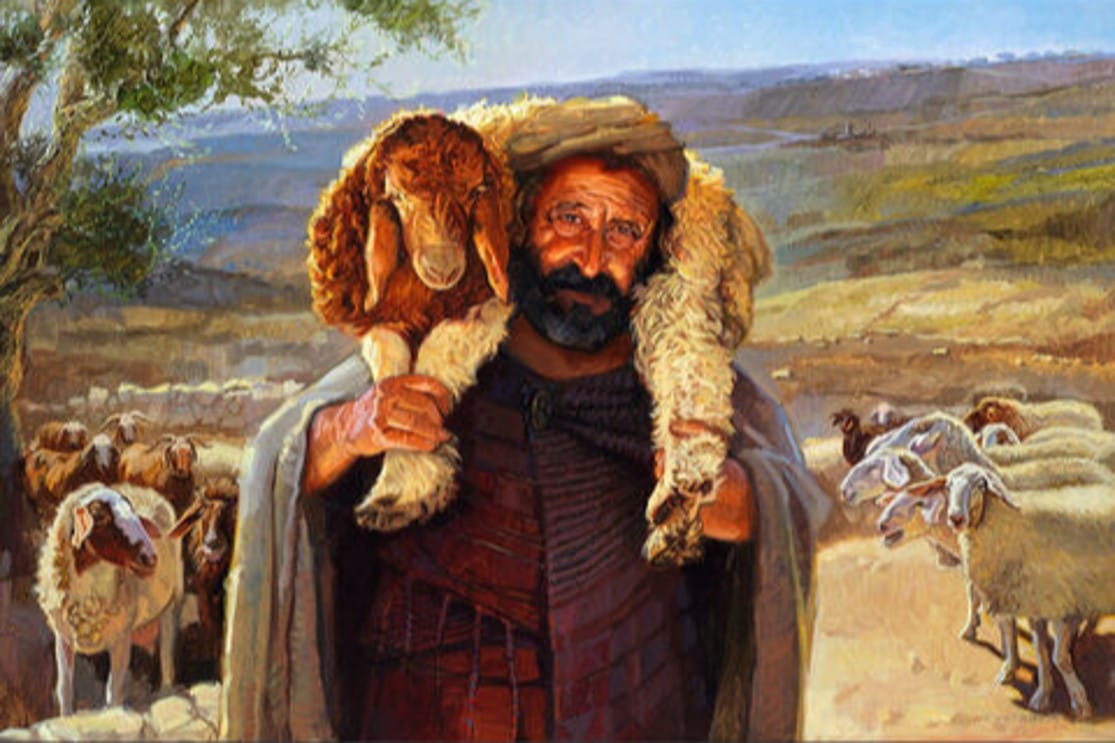
Later in the same chapter we are told to “Obey your leaders and submit to them, for they are keeping watch over your souls, as those who will have to give an account. Let them do this with joy and not with groaning, for that would be of no advantage to you” (13:17).
I've written an essay on this verse but will limit myself now to about five sentences. The true sense of the word “obey” here is better communicated by the NIV, which says “Have confidence in your leaders.” The word is not the same word used elsewhere of children obeying parents or slaves obeying masters. Rather, the vision here is of faithful leaders teaching and persuading, and the rest of the church considering their words and their faithful example, then following them. Wise leaders will issue very few commands but will patiently persuade instead, and wise churches will follow those leaders who have a proven record of Christ-shaped service.
Finally, we should note that this same chapter of Hebrews describes Jesus as “the great shepherd of the sheep” (13:20), and that in the second-last verse of this long letter, without any further comment, the author finally tells his readers, “Greet all your leaders” (13:24). Just in case, I guess, the leaders weren’t even there when the church read the letter!
For ultimately, whether we are shepherds here for a time or not, we are all fellow sheep, and there is but one flock, one Shepherd. Amen.
